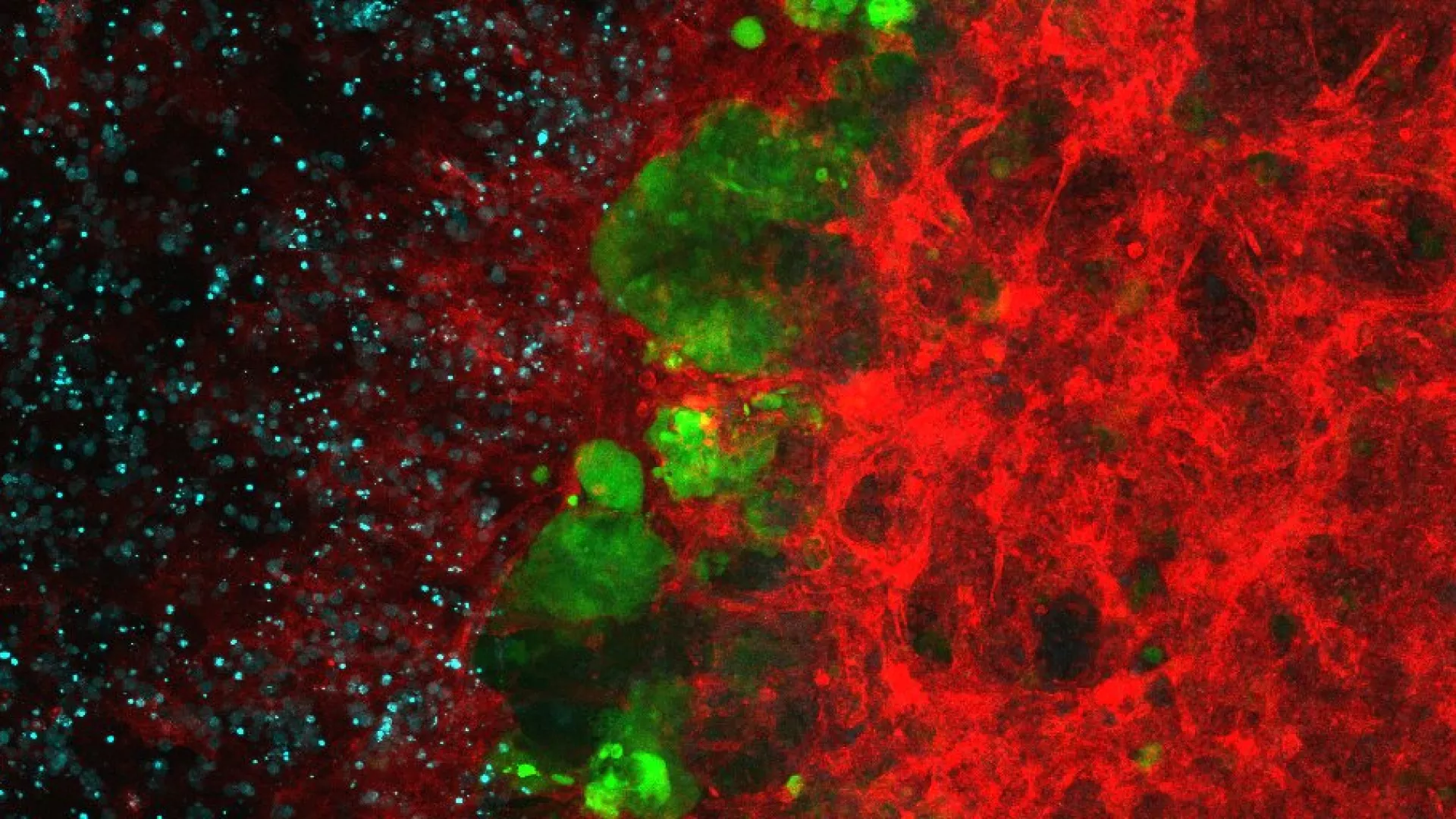


Research information
Background
Innate myeloid cells such as dendritic cells, macrophages and neutrophils balance the initiation of immune responses and homeostasis of organs. To do so, they have to be at the right place at the right time and, indeed, myeloid cells are present in various tissues in the steady-state. However, different tissues represent radically distinct milieus that are tailored towards the particular function of the organ. How can dendritic cells, macrophages and neutrophils live in those dramatically distinct environments?
They evidently have to adapt to the distinct biochemical challenges that are forced upon them by their organ of residence, but the mechanisms are elusive. Also, it is largely unknown if the immune responsiveness or homeostatic activities of dendritic cells, macrophages and neutrophils are affected by their tissue-dependent adjustments or the environment in their homing tissue. Importantly, the dysfunction of innate immune cells can be detrimental and impede immune defense or cause chronic inflammation, which are hallmarks of cancer and aging.
Research interests
We combine bioinformatic approaches, analysis of genetic mouse models of disease and human tissues to tackle the following questions:
How do innate immune cells adapt to the different tissues they colonize? Do they adapt their cellular metabolism? Does that influence their functionality?
Nutrient and oxygen levels strongly differ among tissues, which affects the metabolic processes that resident cells can engage to fuel their persistence and functions. Dendritic cells, macrophages and neutrophils can quickly adapt their cellular metabolism upon stimulation to suit their new functions in vitro. Hence, metabolic modulation holds great potential to tailor their activities, but this is largely elusive in distinct tissue contexts. Given their potency to control immune responses, it is vital to reveal the metabolic adaptions of dendritic cells, macrophages and neutrophils to their homeostatic homing tissue. Furthermore, it is key to understand how their activities are affected by those adaptions and the milieus that they colonize.
What determines the aberrant functions of innate immune cells in aging and non-infectious pathologies such as cancer and obesity? Is their metabolic dysfunction involved? Is there a basis for future therapies?
Organs deteriorate over a lifetime, which results in continuously changing tissue environments. Similarly, non-infectious diseases that affect individual organs alter the local and systemic milieus. Thus, dendritic cells, macrophages and neutrophils have to constantly re-adjust to their homing tissue while ensuring their functionality, but is there a limit? Innate immune cells become dysfunctional during aging and cancer, which hampers immune responses and generates low-level tissue inflammation. The causes are largely unknown. Do aged tissues skew the homeostatic adaption of dendritic cells, macrophages and neutrophils to their environment? Not all tissues age the same, so are innate immune cells dysfunctional in all aged tissues? It is entirely unclear if and how different aged homing tissues influence the functional impediment of tissue dendritic cells, macrophages and neutrophils in the elderly. Similarly, the tumor microenvironment and systemic alterations in cancer-bearing hosts skew the functionality of innate immune cells to prevent anti-cancer immunity. We are only beginning to understand the metabolic adaptions of dendritic cells, macrophages and neutrophils to different cancers and how this knowledge can be used to reinstate their anti-cancer functions.
How do innate immune cells affect the health of their homing organ, independently of immune responses? What is the nature and relevance of the cross-talk between myeloid cells and their neighboring tissue cells?
Tissue macrophages are integral for the homeostasis of their organs of residence, apart from their immune sentinel function. The importance of dendritic cells and neutrophils for physiological processes in tissues and organism health is also emerging. However, those processes in distinct tissues remain poorly understood. Are tissue-specific metabolic adaptions of innate immune cells relevant for the homeostasis of their homing organs? Is there communication between dendritic cells, macrophages or neutrophils and tissue cells? Does that influence tissue function, aging or disease predisposition? Understanding this balanced relationship will reveal novel insights into disease mechanisms and design of treatments.
Selected publications
Projects
ERC Starting Grant 2023
"Studying the metabolism and function of myeloid dendritic cells and neutrophils in distinct tissues in health and aging" (MyTissue), financed by the European Research Council (ERC), through the program Horizon Europe. Reference: 101117470.

Proyectos de Generación de Conocimiento 2022
"Estudio del metabolismo de las células dendríticas mieloides que residen en distintos tejidos", financiado por el Ministerio de Ciencia e Innovación; la Agencia Estatal de Investigación y el Fondo Europeo de Desarrollo Regional. Referencia: PID2022-140715OA-I00.








